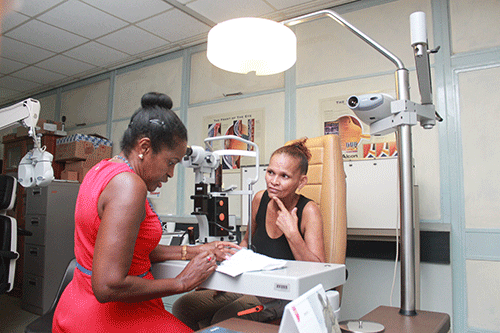Building a digital health workforce is crucial in the progression of the African Public Health sector, and the future of telemedicine.
Telemedicine is the remote diagnosis and treatment of patients by means of telecommunications technology.
Local medical doctor Esperance Luvindao made the remarks at the third International Conference on Public Health in Africa (CPHIA 2023) in Lusaka, Zambia.
She further said artificial intelligence in healthcare requires well-trained and equipped health workers who first understand telemedicine.
Luvindao said the greatest factors facing healthcare workers across the African continent include healthcare workers who are overworked and underpaid.
“Telemedicine has the potential to answer these questions by emphasising the ability of telemedicine products to take over up to 50% of the work that is now done manually, consuming time and energy in an industry that has a limited budget for human capital salary increments,” said Luvindao.
She stated that without capacity building, the continent is unable to maximise the opportunities that lie with a digital health workforce.
According to the Centres for Disease Control and Prevention, telehealth is “the use of electronic information and telecommunication technologies to support and promote long-distance clinical healthcare, patient and professional health-related education, public health and health administration”.
“Developing a digital health workforce will first require regulation review and the promotion of telemedicine-friendly policies that can be encouraged through large healthcare bodies such as the Africa CDC,” said Luvindao.
She noted that learning from best practices such as the telemedicine policies enacted in 2022 across a few African countries will set Namibia on the correct trajectory, allowing for reviewed policies to make room for telemedicine products and services that are yet to be implemented across the continent.
“This can reduce the burden on healthcare workers while promoting quality healthcare for all, irrespective of socioeconomic status,” said the founder of Menga Healthcare Technology.
Luvindao further stated that the product can assist millions across the African continent, including facilitating the work of healthcare workers by automating numerous health workforce processes.
“Health policies and regulations were created to protect our people. Yet with the advancement of telemedicine, these same policies may now stand as the greatest enemy to progressive digital change and the digitisation of the health workforce,” highlighted Luvindao, who plans on launching a telemedicine product in February 2024.
She said to promote a digital health workforce, we must consider the possible creation of an African Digital Health Coalition to oversee heads of departments within hospital systems from nurses to surgeons and hold governments accountable for set out objectives in terms of international strides.
Luvindao believes annual training in digital health can afford healthcare workers the opportunities to augment skills and avoid redundant skills and knowledge.
“Digital health can take us from where we are to the African healthcare system, we hope to create affording all people irrespective of socioeconomic status equal standardised healthcare. It can take us from a place of overworked, underpaid healthcare workers, to satisfied skilled workers improving the quality of health delivered to all,” she stated.
The World Health Organisation states that the Covid-19 pandemic shone a spotlight on how telemedicine can help deliver healthcare to all, especially for people living in remote areas and underserved communities.
“For telemedicine to have the most impact when and where it is needed, the enabling environment is critical. Investments in national policies, governance, and standards are important to have in place,” said Alain Labrique, Director of, Department of Digital Health and Innovation recently.
Pascale Allotey, Director of WHO Department of Sexual and Reproductive Health and Research said telemedicine is an important tool that expands access to critically needed sexual and reproductive health services.
“But we need to be mindful of the inherent inequities where access to the technology is limited or where there is the potential for harm,” she said.


